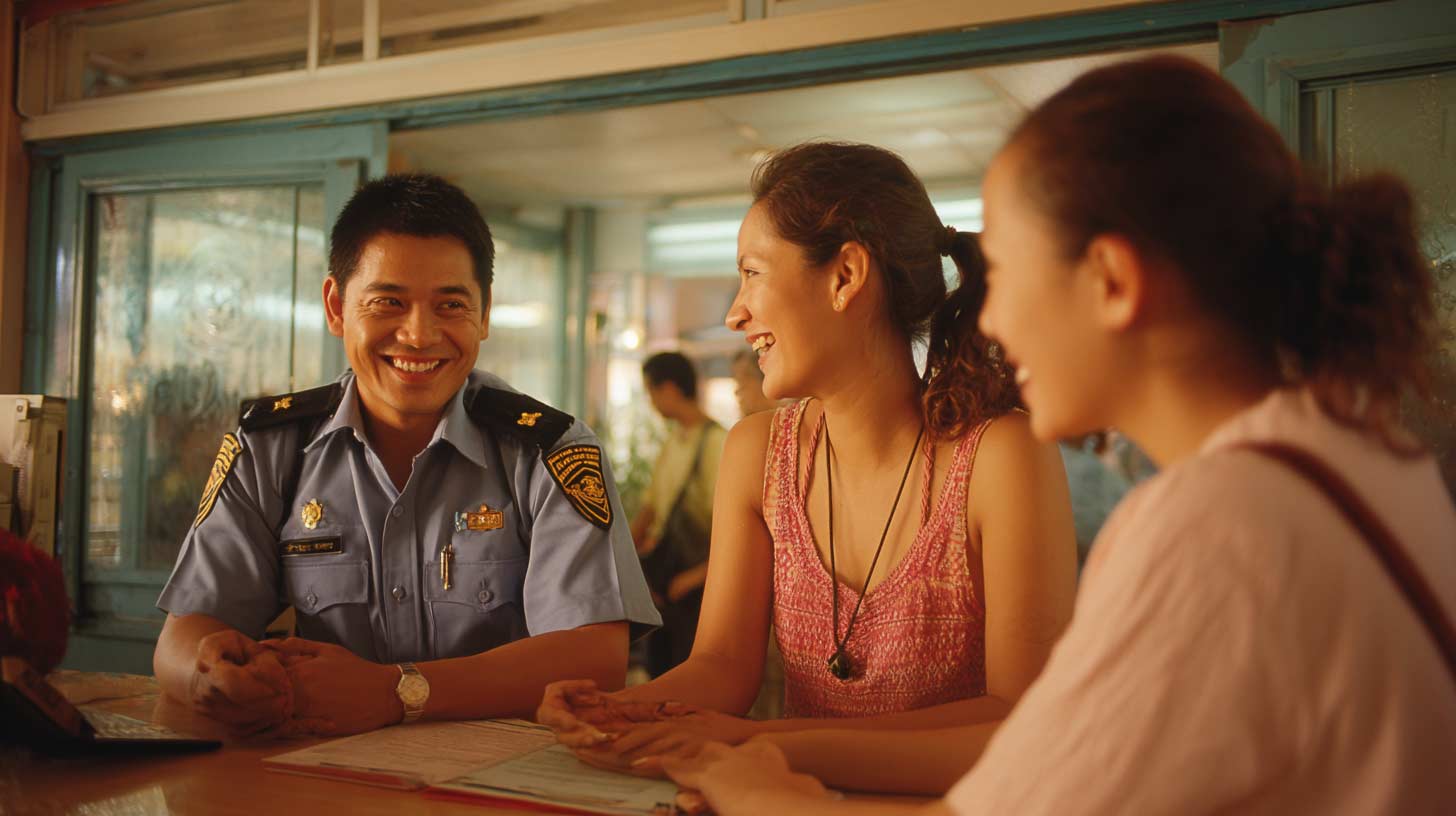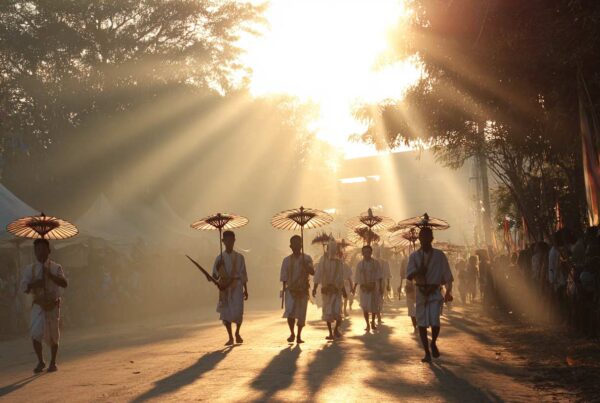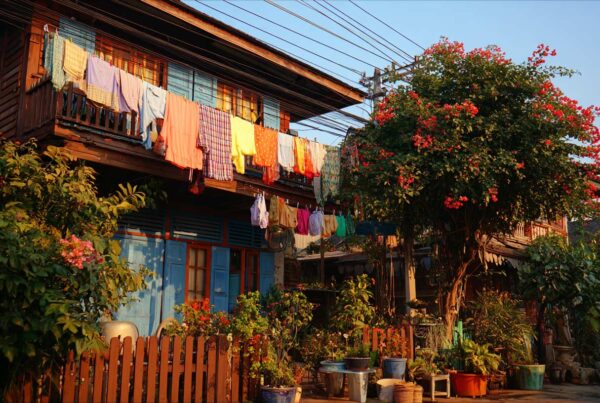Moving to Chiang Mai is more than changing cities; it is stepping into a slower rhythm where modern comfort meets deep cultural heritage. The city’s affordable lifestyle, mild climate, and creative community have made it one of Southeast Asia’s most popular destinations for long-term visitors. Whether you plan to study, work remotely, or simply enjoy a peaceful chapter of life, this guide walks you through everything you need to know before settling down in Northern Thailand.
1. Why People Choose Chiang Mai
🌸
Chiang Mai combines mountain scenery, local markets, and easy connectivity. The cost of living remains lower than Bangkok or Phuket, yet access to healthcare, education, and transport is strong. A meal of khao soi costs less than a coffee in most Western cities, and high-speed internet makes remote work smooth. For many, the balance between practicality and culture is what keeps them here. Short-term visitors often arrive for a few weeks but find themselves returning year after year.
2. Understanding Visa Options
Before booking a one-way ticket, it helps to understand how visas work in Thailand. Most travelers begin with a 30-day visa exemption or a 60-day tourist visa, extendable once. For longer stays, the most common paths are:
💡
- Education Visa (ED): Ideal for those studying Thai language or cultural courses. Stay in CNX assists applicants with enrollment, paperwork, and immigration appointments.
- Retirement Visa (O-A or O-X): For people aged 50 or above with the required savings or monthly income.
- Work and Business Visas: Require an employer or registered Thai company sponsor.
- Volunteer and Marriage Visas: Suited for those supporting community projects or married to Thai citizens.
Each option comes with its own paperwork and reporting rules. The local immigration office is located near the airport (📍 Chiang Mai Immigration), where most extensions and 90-day reports are processed. It is wise to arrive early in the morning and bring photocopies of all documents. Having guidance from a local service such as Stay in CNX simplifies the process significantly.
3. Finding a Place to Live
Chiang Mai’s accommodation market offers variety, from small studios in the Old City to serviced apartments in Nimman and quiet homes near the mountains. Short-term visitors often start with monthly rentals, then move once they understand the neighborhoods better.
📍
- Nimmanhaemin (Nimman): Lively, modern, and full of cafés such as Toffee Roasters and Ristr8to. Best for digital nomads and students.
- Suthep: Close to Chiang Mai University and forest temples like Wat Umong. Ideal for quiet living and morning hikes.
- Old City: Central, walkable, and full of charm with temples and cafés at every corner.
- Hang Dong & Mae Hia: Spacious homes and calm surroundings, preferred by families and retirees.
Read our full Neighborhood Guide for lifestyle insights on each district before signing a long-term lease. For contracts, landlords may ask for a one-month deposit and one month’s rent upfront. Most include Wi-Fi, water, and basic furniture.
4. Everyday Essentials
Once you have a roof over your head, setting up daily life is straightforward.
🌞
- Banking: Major banks like Bangkok Bank, Kasikorn, and Krungthai accept foreign accounts with a visa and passport copy. ATMs are everywhere, though foreign card fees apply.
- SIM & Internet: Buy a prepaid SIM from AIS Telewiz Maya or TrueMove shops; packages with unlimited data cost around 400–600 THB per month.
- Healthcare: Hospitals like Chiang Mai Ram Hospital and Bangkok Hospital Chiang Mai provide English-speaking services.
- Transport: Songthaews and Grab motorbikes are the easiest ways to move around. You can also rent a scooter; just ensure you have an international driving permit and helmet.
Public transport remains limited, so most long-term residents prefer scooters or bicycles. Read our article on Getting Around Chiang Mai for navigation advice and safety tips.
5. Building a Routine
Chiang Mai encourages balance between work, study, and leisure. Coworking spaces such as Punspace Wiang Kaew and Yellow Co-Working provide reliable infrastructure for remote professionals. For fitness, locals frequent Powerhouse Gym Chiang Mai or join yoga classes at Freedom Yoga. Weekends are perfect for outdoor escapes to Doi Inthanon or waterfalls listed in Chasing Waterfalls.
⏰
Many expats form friendships quickly through events at cafés, art spaces, or community markets. Regular meetups take place at coworking hubs and creative venues such as Carrot Coffee CNX. Over time, daily routines blend easily with local customs—morning coffee, mid-day street food, and evening walks by the Ping River.
6. Navigating Culture and Etiquette
🐉
Respect is central to Thai culture. Simple gestures such as removing shoes before entering homes or temples and offering a polite wai greeting go a long way. Monks are respected figures, and women should avoid physical contact with them. Learning a few Thai phrases, even simple greetings like “Sawasdee kha/krub” and “Khob khun kha/krub,” helps interactions feel genuine. Festivals such as Yi Peng and Loy Krathong reveal the importance of community and merit-making, so participating respectfully deepens your experience.
7. Important Legal Details
⚖️
After securing accommodation, you or your landlord must register your address with immigration (TM30). This step is mandatory for all foreigners and can usually be done online. Long-term visa holders also need to report every 90 days at immigration or through postal service. For property rental, always check if your name appears on the lease, as it helps with visa renewals or banking. It is advisable to keep passport copies and residence proof on hand, especially when driving.
8. Adjusting to Life in the North
🛠️
The first few weeks in Chiang Mai are often about finding rhythm. The mornings are cool, afternoons warm, and evenings filled with market lights and temple bells. With time, routines feel effortless. For example, start a workday at a coworking space, enjoy lunch at a local market near Punspace Tha Phae Gate, and end with a sunset at Wat Phra That Doi Kham. This simple flow embodies the reason many stay: Chiang Mai makes daily life feel calm yet purposeful.
✨ Plan Your Move with Local Support
✔️ Stay in CNX helps you secure your Education Visa and immigration documents
✔️ Get reliable guidance on housing, legal steps, and settling smoothly
✔️ Start your new chapter in Chiang Mai with confidence and local expertise



